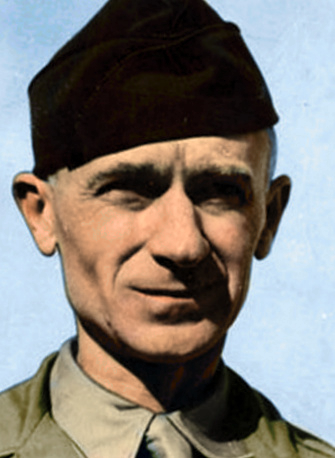Background of news –
Refugees and Palestine
By F. M. Brewer
The number of Jewish refugees in Europe is now estimated to exceed 1,500,000. Of this number, it is believed that not more than one-third will wish to return to their former homes – in countries where they suffered brutal persecution before and during the war. The vast majority look forward to permanent settlement in the Jewish homeland in Palestine.
James G. McDonald, chairman of the President’s Advisory Board on Political Refugees, has said:
Only in Palestine can the mass of Jewish refugees hope to be welcome and to be assisted to integrate themselves in the life of the community.
American Jewish organizations have plans for settlement of a million refugee Jews in Palestine within two years after the end of the war. But these plans cannot be carried out unless there is a change in the immigration policy for Palestine laid down by Great Britain as the mandatory power for that country under the League of Nations.
The present immigration policy was set forth in a British white paper issued in 1939, before the outbreak of the present war. It provided for the admission of 10,000 Jews to Palestine in each of the next five years, with an additional allowance of 25,000 to care for refugees. Thus, provision was made for the entry of 75,000 additional Jews, but Jewish immigration was to be cut off altogether at the end of March 1944 – “unless the Arabs are prepared to acquiesce in it.”
Quota not reached
War conditions made it impossible for the full 75,000 Jews to reach Palestine by last March, with the result that the time limit was given an indefinite extension. However, the number of entry permits at present outstanding is only about 10,000, while the number of Jews wanting to go to Palestine is perhaps a million.
The present immigration policy has been denounced by all Zionist organizations, but it does not result from any unfriendly attitude toward the Jews on the part of the British government.
The Balfour Declaration of 1917, which promised the establishment in Palestine of “a national home for the Jewish people” was a British state paper. Immediately after the announcement of the present policy in 1939, it was condemned by Winston Churchill as “plainly a breach and a repudiation of the Balfour Declaration.” But the policy has not been changed since Mr. Churchill became prime minister – in fact, all suggestions for liberalization have been strongly resisted by the London government.
No change could be made without grievously offending the Arabs and avoidance of such offense is a matter of prime importance to the Allied cause in the war.
An ‘Arab empire’?
Arab support was important also in the First World War. Negotiations with Arab leaders led to an agreement in January 1916, in which it was stated that “The British government agree to help in the formation of an Arab Empire completely independent in its internal and foreign affairs.” Palestine was not specifically mentioned, but the Arabs believed it was to be included in the proposed Arab Empire. The subsequent announcement of the Balfour Declaration created indignation throughout the Moslem world.
No steps have since been taken by the British government to promote “the formation of an Arab Empire,” but the Arab states have themselves arranged a meeting at Cairo, February 14, to set up an “Arab Union.” Resistance to further Jewish immigration to Palestine will be one of the principal purposes of the new confederation.
The need to propitiate the Arabs was the chief reason for War and State Department intervention last year when Congress was about to adopt a resolution calling for an immediate lifting of all restrictions on Jewish immigration to Palestine. However, the Republican and Democratic platforms of 1944 both endorsed “unrestricted immigration” and establishment in Palestine of a free and democratic Jewish commonwealth.
